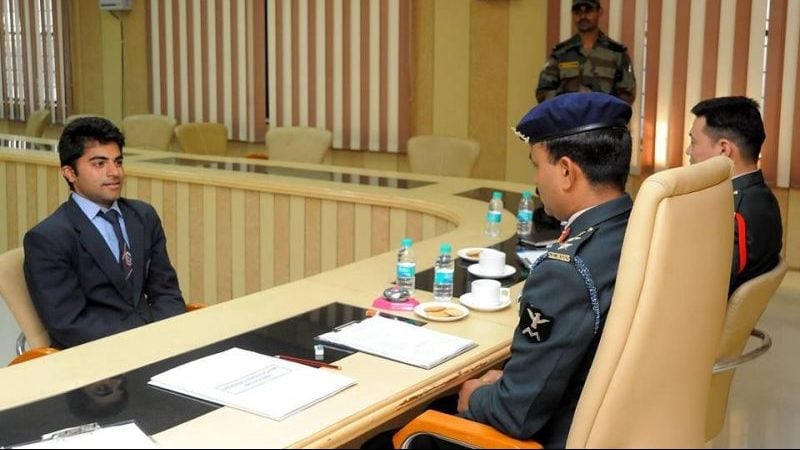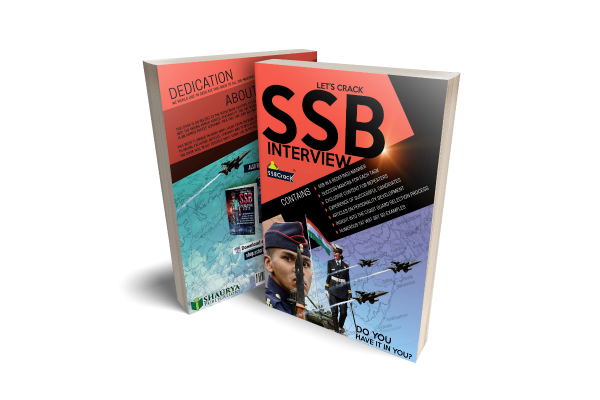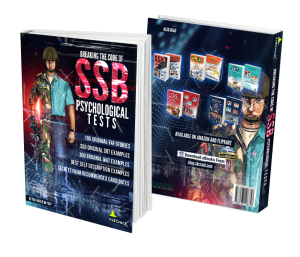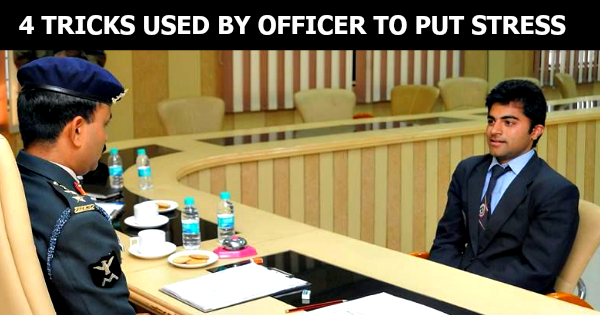 Defence aspirants who are going to face the SSB interview must know the importance of the personal interview at SSB. Though all tests are equal and one must perform in each one of them with the best they can but still, if someone has to choose the most important part of the SSB then it would be the personal interview. Below we have given some tricks used by the interviewing officer to find the best fit for the armed forces, you can put some reverse engineering on that to imporve your performace during the PI at SSB. Also, you should not miss reading another important article in which we have mentioned about the 6 Ways Used By SSB Interviewing Officer To Catch A Liar. For an SSB interviewing officer, the superficial impression or ‘impression management’ does not matter. ‘Impression Management’ is a conscious or subconscious process in which people attempt to influence the perceptions of other people about a person, object or event, means the process of hiding the flaws and exaggerating the good qualities in a person. During the interview, every aspirant wishes to be the best and if not at least show that they are the best in what they do. Hence the general rules of the interview go in vain. As a result, there is a basic need to appoint an experienced person to conduct the interview, someone who is mature and has gained knowledge over the years in interviews. This is a technique that can predict the output and sometimes predict the results as well. It mostly depends on the Officer’s Intelligence Rating (OIR) and the Personal Information Questionnaire (PIQ).
Defence aspirants who are going to face the SSB interview must know the importance of the personal interview at SSB. Though all tests are equal and one must perform in each one of them with the best they can but still, if someone has to choose the most important part of the SSB then it would be the personal interview. Below we have given some tricks used by the interviewing officer to find the best fit for the armed forces, you can put some reverse engineering on that to imporve your performace during the PI at SSB. Also, you should not miss reading another important article in which we have mentioned about the 6 Ways Used By SSB Interviewing Officer To Catch A Liar. For an SSB interviewing officer, the superficial impression or ‘impression management’ does not matter. ‘Impression Management’ is a conscious or subconscious process in which people attempt to influence the perceptions of other people about a person, object or event, means the process of hiding the flaws and exaggerating the good qualities in a person. During the interview, every aspirant wishes to be the best and if not at least show that they are the best in what they do. Hence the general rules of the interview go in vain. As a result, there is a basic need to appoint an experienced person to conduct the interview, someone who is mature and has gained knowledge over the years in interviews. This is a technique that can predict the output and sometimes predict the results as well. It mostly depends on the Officer’s Intelligence Rating (OIR) and the Personal Information Questionnaire (PIQ).

The SSB Interviewing Officer (I.O) has some special tools in his arsenal or some special tricks up his sleeves to break the superficial impression and the ‘façade’ that the aspirant puts up on their face unknowingly or knowingly. They include:
- Distraction
The I.O might look away from you and pretend to talk over the phone or simply be distracted by someone or something else altogether or just stares at you once in a while. This way he might be trying to judge your reaction towards the distraction.
Generally while talking to a person who is in a position of authority a person expects their solidarity and approval either in the form of words or gestures. Thus, when a person sitting on the other side of the table is looking distracted or isn’t paying enough attention to what you are saying it might hit your confidence a little and if you as an aspirant are trying to make some false impression on the I.O, you are sure to lose your traction. It is a natural tendency of every individual.
The motives behind the distraction are:
- To judge whether you are actually true or not. If it is true then, you wouldn’t be much affected by the distraction the I.O is creating. Whereas you seem to be more distracted when you are concealing some facts and trying to exaggerate on others unnecessarily to make false impressions on them.
- Secondly, to check if you get disturbed by the slightest distraction and lose your flow of answering the questions or rather your intonation changes all of a sudden.
The I.O will be glad even if you have a few weaknesses than to appreciate and fall prey to the numerous fake strengths and put-ups you lay in front of him. One must not forget that personality is the interplay between the strengths and the weaknesses of an individual, so be aware of it and not hesitating to accept it is the basic idea about it. There is no reason to feel inferior about them at any point. Rather accepting them and willing to make improvements is what is expected of you.

You might lose your chances of getting through the interview altogether in the quest of making an impression which is mostly based on the fake information. Integrity and honesty are the main things that will get you to the other side of the door without much effort at all and that is what the Armed Forces are dependent on.
- Rejecting your answers
The I.O might reject the answers at many instances. This is basically to check your emotional stability and how well you can accept and move on with criticism. Your honesty should guide you at all instances. Being a little nervous is acceptable but even then you need to control it beyond a limit.
- Checking your behavioral rigidity
If the I.O finds out you are lying, he scours you, checks how defensive you can be and also your flexibility. Your willingness to accept your weaknesses is actually a sign of your strength. Being diplomatic in your answers is not okay when it comes to the interview.
Don’t forget to read “12 Different Types Of Important SSB Interviews Questions“
- Situational questions
You will be given certain situations and problems and made to find solutions or handle the situations. This, in turn, is expected to judge your resourcefulness, wit, common sense and adaptability.
If you have ever attended the SSB interview before, you might relate with some of these actions of IO from these tricks, next time keep these things in mind and do include them while preparing for the SSB personal interview, though these are very basic things and one need not remember them by heart, any honest and confident aspirant won’t be affected by these tricks of SSB interviewing officer. All the best.





